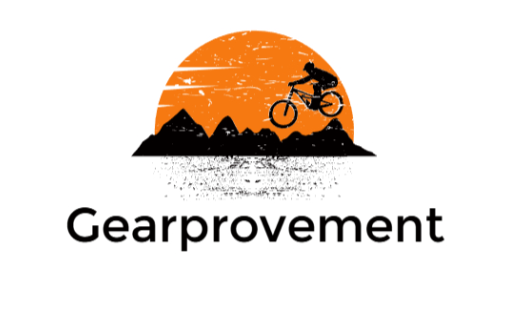Discover the secrets to extending your tent's lifespan and keeping it adventure-ready! 🏕️ #TentCare101
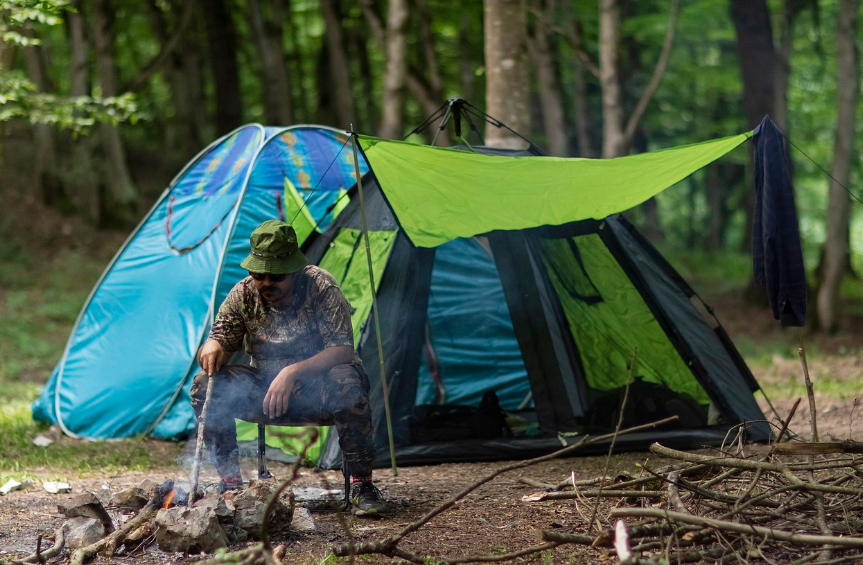
Embracing the great outdoors is a true adventure, and our trusty tents are our companions on this journey.
Whether you're an avid camper or an occasional explorer, one thing is certain: your tent deserves some TLC.
In this post, we'll guide you through the essential steps to give your tent the care it deserves.
From removing stubborn dirt and stains to ensuring it's ready to repel rain and withstand the elements, we'll cover it all.
Let's dive into the world of tent maintenance and preservation to ensure your shelter remains your steadfast ally on your outdoor escapades.
What You'll Need
Here's a list of all the matierals you'll need to propery clean your tent:
Mild Soap
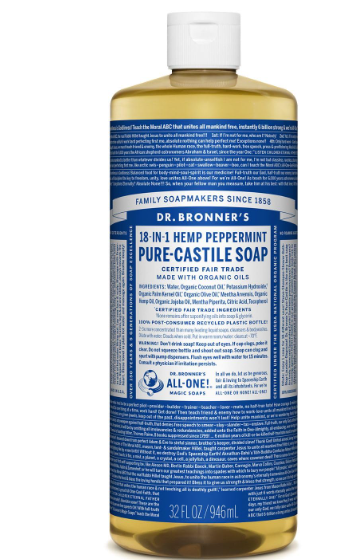
To clean your tent, you should use a mild, fragrance-free soap. You can use dish soap, but it is important to make sure that it is mild and does not contain any harsh chemicals. You can also use a soap that is specifically designed for cleaning outdoor gear.
Here are some specific soap recommendations for cleaning your tent:
- Dr. Bronner's Castile Liquid Soap
- GearAid Revivex Tent + Gear Cleaner
- Grangers Tent + Gear Cleaner
- Nikwax Tech Wash
- Woolite
Avoid using the following soaps to clean your tent:
- Laundry detergent
- Bleach
- Spot removers
- Fabric softeners
Soft Brush or Sponge
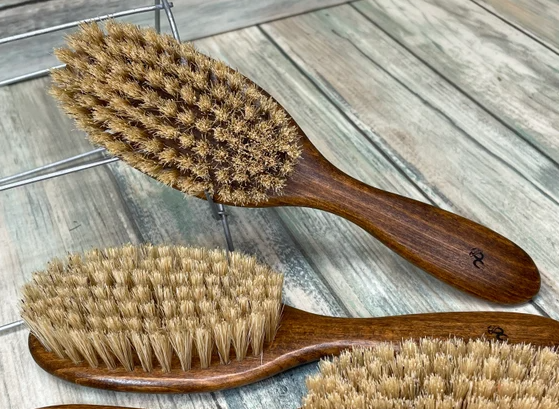
To clean your tent, you will need a soft brush or sponge that is non-abrasive. This means that it should have soft bristles or a soft texture that will not damage the fabric of your tent.
Here are some specific types of soft brushes or sponges that you can use to clean your tent:
- Natural bristle brush
- Soft sponge
- Microfiber sponge
- Microfiber cloth
Avoid using the following brushes or sponges to clean your tent:
- Scrub brushes
- Steel wool brushes
- Wire brushes
- Dishwashing sponges
These brushes and sponges can damage the fabric of your tent.
When choosing a soft brush or sponge to clean your tent, it is also important to make sure that it is the right size for the job. If you are cleaning a large tent, you may want to use a larger brush or sponge. If you are cleaning a small tent or specific areas of your tent, you may want to use a smaller brush or sponge.
Tips for using a soft brush or sponge to clean your tent:
- Use a gentle, circular motion when brushing or sponging your tent.
- Pay special attention to any areas that are heavily soiled.
- Be careful not to scrub too hard, as this can damage the fabric of your tent.
- Rinse the brush or sponge frequently to remove any dirt or grime.
By following these tips, you can use a soft brush or sponge to clean your tent safely and effectively.
Tub or Large Basin
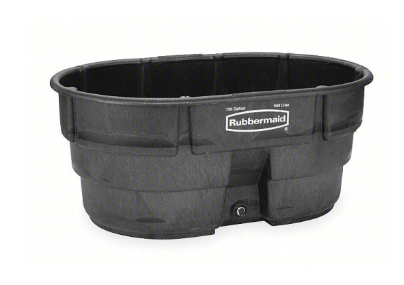
When choosing a tub for cleaning your tent, it is important to make sure that it is clean and free of any harsh chemicals. You should also make sure that the tub is large enough to fit the entire tent and that it has a drain.
Here are some additional tips for cleaning your tent in a tub:
- Fill the tub with cool to lukewarm water.
- Add a small amount of mild, fragrance-free soap to the water.
- Turn the tent inside out and submerge it in the soapy water.
- Gently agitate the water with your hands to loosen any dirt or grime.
- Pay special attention to any areas that are heavily soiled.
- Rinse the tent thoroughly with clean water.
- Hang the tent up to dry completely before storing it.
By following these tips, you can clean your tent safely and effectively in a tub.
Water Source

You should use clean, fresh water to clean your tent. This means that the water should be free of any dirt, debris, or chemicals. If you are camping and do not have access to clean, fresh water, you can use bottled water or water that has been filtered or boiled.
Here are some tips for finding a clean water source for cleaning your tent:
- If you are camping, look for a water source that is clear and free of any debris. Avoid using water from sources that are stagnant or that have a strange odor or color.
- If you are unsure whether a water source is clean, you can filter or boil the water before using it.
- If you are using bottled water, make sure that it is from a reputable brand and that it has not been exposed to extreme heat or cold.
Once you have found a clean water source, you can fill up a tub or bucket with water and begin cleaning your tent. Be sure to rinse the tent thoroughly with clean water after cleaning it.
Here are some additional tips for cleaning your tent with water:
- Use cool to lukewarm water. Hot water can damage the fabric of your tent.
- Avoid using a pressure washer to clean your tent, as this can damage the fabric and seams.
- If you are spot cleaning a specific area of your tent, you can use a spray bottle to apply the water.
- Be careful not to over-wet your tent, as this can make it difficult to dry.
By following these tips, you can use water to clean your tent safely and effectively.
Steps To Cleaning The Tent
Cleaning a tent is essential for its longevity and to ensure a comfortable camping experience. Here are the steps to clean a tent:
Select a Suitable Location:Choose a clean and open area to clean your tent. Make sure it's a sunny day, if possible, as this will help your tent dry faster.
Empty the Tent:Remove all gear, sleeping bags, and other items from inside the tent. Shake them out to remove loose dirt and debris.
Shake Out Loose Dirt:Take the tent outside and gently shake it to remove loose dirt, leaves, and debris.
Set Up the Tent:Pitch the tent in your chosen location according to the manufacturer's instructions. Make sure it's properly secured and taut.
Prepare the Cleaning Solution:In a tub or large basin, mix a solution of mild soap or specialized tent cleaner and water. Use a small amount of soap to avoid leaving residue on the fabric.
Scrub the Tent:Dip a soft brush or sponge into the soapy water and gently scrub the tent's exterior. Pay extra attention to areas with stains, mildew, or stubborn dirt. Be gentle to avoid damaging the tent's waterproof coating.
Rinse Thoroughly:Rinse the entire tent with clean water to remove all soap residue. Use a hose or clean bucket to rinse thoroughly.
Clean Zippers and Fasteners:Inspect and clean zippers, Velcro closures, and other fasteners with a soft brush or toothbrush to remove dirt and debris. Ensure they are working smoothly.
Dry the Tent:Allow the tent to air dry completely in the sun. Make sure both the rainfly and tent body are thoroughly dry, as any moisture can lead to mold and mildew growth.
Reapply Seam Sealer (if necessary):Check the seams for any signs of wear or peeling seam tape. If needed, reapply seam sealer according to the manufacturer's instructions.
Reapply Waterproofing (optional):If your tent's waterproofing has worn off, you can apply a waterproofing spray to the rainfly and tent body. Follow the manufacturer's recommendations for application.
Pack and Store Properly:Once the tent is completely dry, carefully pack it away in a clean, dry storage bag. Store it in a cool, dry place away from direct sunlight and moisture.
Regularly cleaning and maintaining your tent will prolong its lifespan and ensure that it continues to protect you from the elements during your camping adventures.
Recommended: Best Tents For Camping
How To Prevent Tent From Smelling
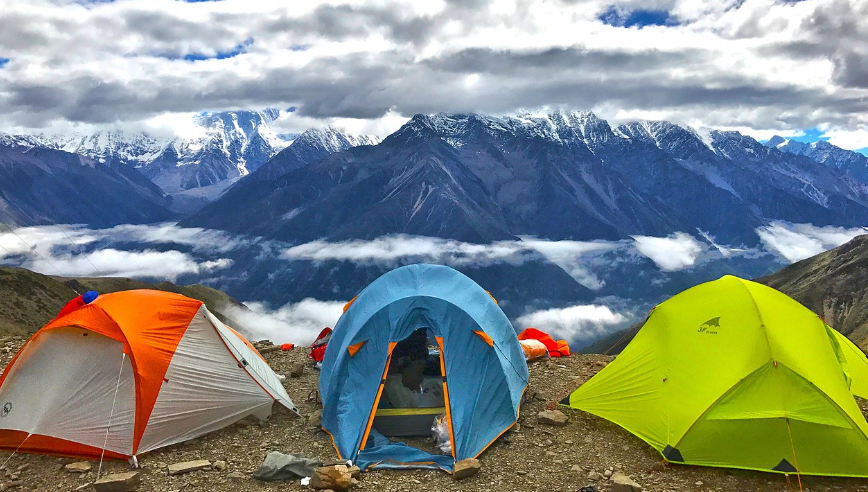
Preventing your tent from developing odors is essential to ensure a pleasant camping experience. Here are some tips to help you keep your tent smelling fresh:
Properly drying your tent
It is important to properly dry your tent before storing it, as moisture can lead to mold and mildew growth. If your tent is wet, set it up in a well-ventilated area and let it dry completely. You can also use a fan to help the drying process.
Clean regularly
Clean your tent after each use to remove dirt, grime, and food residue. You can use a mild soap and water solution to clean the tent, or you can purchase a commercial tent cleaner. Be sure to rinse the tent thoroughly and let it dry completely before storing it.
Use a ground cloth and footprint
A ground cloth and footprint can help to protect your tent from moisture and dirt. The ground cloth goes under the tent floor, and the footprint goes under the ground cloth. This extra layer of protection can help to keep your tent cleaner and prevent odors from developing.
Keep food out of tent
Food crumbs and spills can attract pests and cause your tent to smell. Avoid eating or cooking inside your tent, and be sure to clean up any food spills immediately.
Avoid wearing shoes inside
Shoes can track in dirt and mud, which can make your tent dirty and smelly. Avoid wearing shoes inside your tent, and if you do need to go inside, be sure to take off your shoes before doing so.
Ventilate properly
Proper ventilation can help to keep your tent fresh and prevent odors from developing. Make sure to open the vents and windows of your tent whenever possible, especially when you are not inside.
Use odor absorbers
Odor absorbers can help to remove and prevent odors from developing in your tent. You can purchase commercial odor absorbers, or you can make your own by filling a bowl with baking soda or activated charcoal.
Wrapping Things Up
In conclusion, preserving the freshness of your tent is not only about ensuring a comfortable camping experience but also about extending the life of your trusted outdoor companion.
By following the tips and practices outlined in this guide, you can keep your tent smelling fresh and in excellent condition for many adventures to come.
Remember, a well-maintained tent not only offers shelter but also peace of mind, allowing you to fully enjoy the beauty of the great outdoors without worrying about unwanted odors or premature wear and tear.
So, here's to countless more nights under the stars in your clean, fresh-smelling tent!
